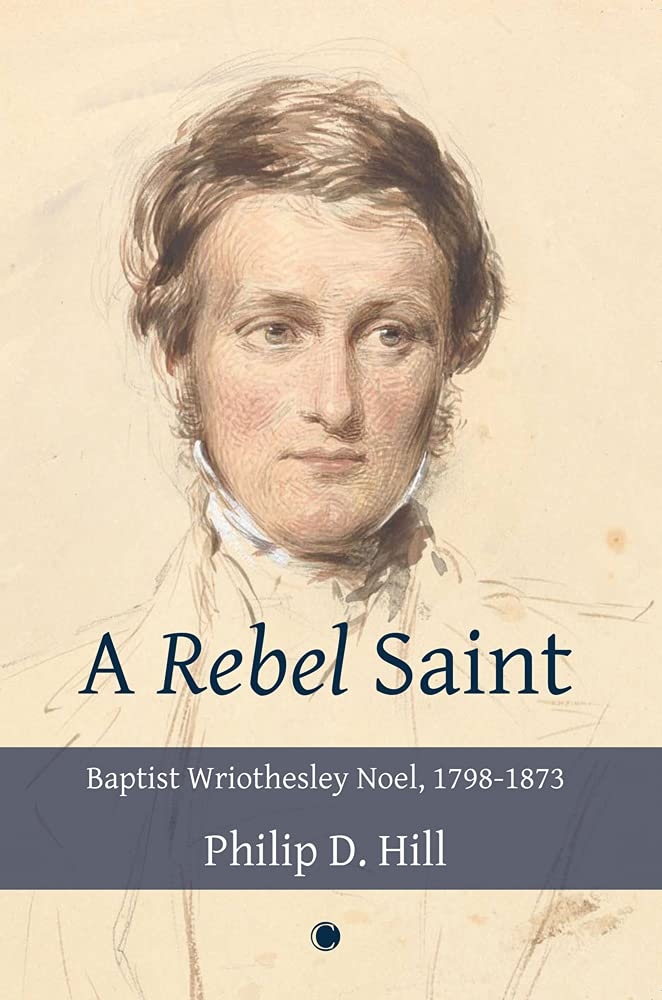'A shame so great a Baptist leader has been forgotten'
Philip D. Hill explains why he's written a comprehensive study of the life and thought of the influential 19th century minister Baptist Wriothesley Noel, a Christian leader 'as famous as CH Spurgeon in his day'
 I confess that I love Baptist history and like to write on unexplored or neglected corners of it. The life of the Honourable and Reverend Baptist Wriothesley Noel (1798-1873) is one such subject. Until 1849 he was a leading Anglican Evangelical but that year was baptised and entered the Baptist ministry. Twice elected as chairman of the Baptist Union he was a household name in his day, as famous in Britain as Spurgeon.
I confess that I love Baptist history and like to write on unexplored or neglected corners of it. The life of the Honourable and Reverend Baptist Wriothesley Noel (1798-1873) is one such subject. Until 1849 he was a leading Anglican Evangelical but that year was baptised and entered the Baptist ministry. Twice elected as chairman of the Baptist Union he was a household name in his day, as famous in Britain as Spurgeon.
One reason for his fame was his aristocratic background. His brother was an earl (of Gainsborough), the family was related to the earl of Shaftesbury, and a sister-in-law was a close friend of Queen Victoria. Another reason was that his preaching ministry attracted wide attention. Both fellow aristocrats and even sometimes the queen (incognito) attended his church. He regularly drew thousands to his ministry, both before and after his secession.
As an Anglican he was minister of the leading Anglican Evangelical church in London, which the Clapham Sect members made their spiritual home after the death of their minister in Clapham and where the future bishop J. C. Ryle attended when he was a law student in London. In 1841 he was appointed a chaplain to Queen Victoria who greatly admired his preaching. After his secession he ministered at John Street Baptist Chapel in central London, where crowds of thousands still sought him out.
His secession and credo-baptism were reported throughout the British Isles - and indeed the English-speaking world, but these actions lost him his society status and led to the disagreement of his wife and children, who remained loyal Anglicans.
Three other facts made him a great Evangelical leader. First, in an age of denominational hostility he was a leading ecumenist who welcomed fellowship with all Evangelicals, taking a leading part in founding the Evangelical Alliance and the London City Mission.
He was secondly a passionate and fruitful evangelist, both through his own preaching and through encouraging new talent, such as the Evangelical founder of the YMCA. His evangelistic vision was international through his involvement in mission abroad, notably in Ireland after its incorporation into Britain.
Thirdly, he was a leader in London of the 1858-63 revival.
Two more aspects of his life deserve mention. First, he was an able writer, producing about 90 books. Second, he was as radical in his politics as he was conservative in his theology. The poverty of Ireland and of the urban poor in London inspired him to criticise government policy, adopt radical political strategies and work for the practical alleviation of poverty and social injustices. For him, social action and very blunt evangelistic work were two sides of one coin: the love for humanity in God's heart as well as his.
It is a shame that he has been long forgotten except by a few historians of Evangelicalism. It is a double shame that so great a Baptist leader in the 19th century is ignored by Baptists today.
A Rebel Saint: Baptist Wriothesley Noel, 1798-1873 by Philip D Hill is published by James Clarke & Co (an imprint of Lutterworth Press)
The Revd Dr Philip D Hill is a retired Baptist minister, missionary and theological college teacher, and was from 2013 to 2018 Pastoral Dean at Union School of Theology in Bridgend. His previous publications include Church of the Third Millenium (Paternoster, 1999) and The Baptist Revival Fellowship (Apostolos, 2017).
Do you have a view? Share your thoughts via our letters' page.
Baptist Times, 13/06/2022